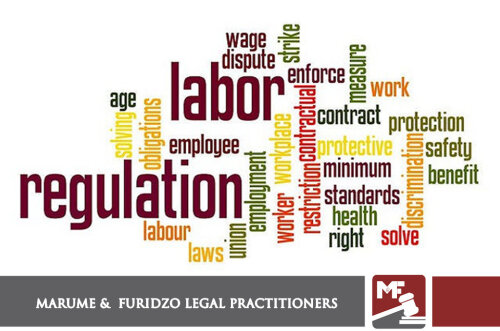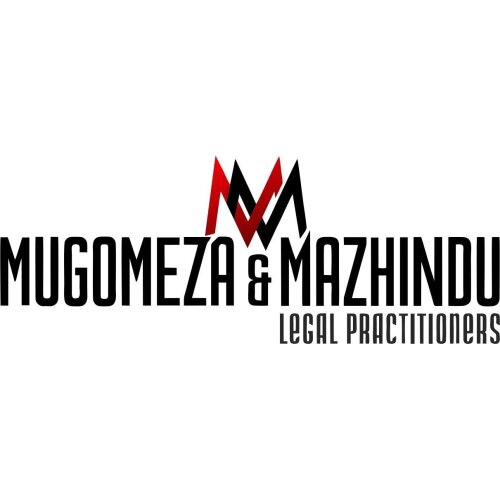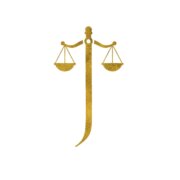Best Tax Lawyers in Zimbabwe
Share your needs with us, get contacted by law firms.
Free. Takes 2 min.
Or refine your search by selecting a city:
List of the best lawyers in Zimbabwe
About Tax Law in Zimbabwe
Tax law in Zimbabwe is governed by several statutes and regulations that outline the tax obligations of individuals and businesses. Zimbabwe's tax system is overseen by the Zimbabwe Revenue Authority (ZIMRA), which is responsible for collecting revenue through various taxes, such as income tax, value-added tax (VAT), customs duties, and excise duties. The legal framework aims to ensure compliance, promote fair taxation, and boost the country's economic development. Tax laws can be complex, often requiring careful navigation to fully understand obligations and rights.
Why You May Need a Lawyer
There are several common situations where you may need the expertise of a tax lawyer in Zimbabwe:
- Legal Disputes: If you have been accused of tax evasion or non-compliance, a lawyer can help defend you and navigate legal challenges.
- Tax Planning: Businesses and individuals may require legal help to devise tax strategies that ensure compliance while optimizing tax burdens.
- Compliance Issues: Understanding and adhering to the complex tax regulations can be challenging; a lawyer can help maintain compliance and avoid penalties.
- Filing Requirements: Assistance in filing proper tax returns that meet all the legal requirements.
- Audits: Legal representation during audits can ensure that the process is handled correctly and your rights are protected.
Local Laws Overview
Several key aspects of local tax laws in Zimbabwe that individuals and businesses should be aware of include:
- Income Tax: This applies to individuals and corporate entities, with specific rates and allowances that vary depending on income levels and categories.
- Value-Added Tax (VAT): Levied on goods and services, businesses must register for VAT if their turnover exceeds a certain threshold.
- Capital Gains Tax: Tax imposed on the profit from the sale of an asset.
- Double Taxation Agreements: Zimbabwe has agreements with several countries to prevent double taxation of income.
- Withholding Taxes: These are taxes withheld at the source, such as dividends, interest, and royalties.
Frequently Asked Questions
1. What is the corporate tax rate in Zimbabwe?
The corporate tax rate in Zimbabwe generally stands at 24%, but there are variations depending on the particular sector or status of the company.
2. How often should VAT returns be filed?
VAT returns in Zimbabwe should be filed every month, and payment is due by the 20th day of the subsequent month.
3. Are there any tax breaks for new businesses?
Yes, certain incentives, exemptions, and concessions are available to new industries or investors, especially in Special Economic Zones.
4. What constitutes tax evasion in Zimbabwe?
Tax evasion involves illegal actions like underreporting income, inflating deductions, or not filing tax returns, all aimed at avoiding tax obligations.
5. Can tax disputes be appealed?
Yes, taxpayers have the right to challenge and appeal assessments or decisions made by ZIMRA through the specified legal processes.
6. What is PAYE and who should register for it?
Pay As You Earn (PAYE) is a system where employers deduct tax from employees' salaries and remit it to ZIMRA. All registered employers should implement PAYE for eligible employees.
7. Are donations tax-deductible?
Certain charitable donations can be tax-deductible, but it is important to confirm specific eligibility and documentation requirements with ZIMRA.
8. How are capital gains taxed?
Capital gains tax is calculated on the profit made from the sale of capital assets and is generally assessed at 20% for individuals.
9. Is there a statute of limitations for tax assessments?
Yes, ZIMRA can typically audit and make assessments for up to six years from the date a tax return is filed, although this can extend in cases of fraud.
10. What are the penalties for late tax payments?
Penalties and interest may apply to late tax payments, including a standard penalty of 100% of unpaid tax and interest at a rate specified by ZIMRA.
Additional Resources
For additional guidance or information, consider reaching out to the following resources:
- ZIMRA: The official website and offices of the Zimbabwe Revenue Authority offer resources, forms, and information relevant to tax obligations.
- Tax Advisory Firms: These firms provide consultancy services, assisting with compliance, planning, and dispute resolution.
- Institute of Chartered Accountants of Zimbabwe: This body can provide referrals to certified professionals who specialize in tax matters.
Next Steps
If you require legal assistance with tax matters in Zimbabwe, consider the following steps:
- Consult with a qualified tax lawyer who is knowledgeable about Zimbabwean tax law to understand your specific situation.
- Gather relevant documents, such as tax returns, correspondence from ZIMRA, and any notices or assessments received.
- Consider professional services from tax specialists or consultancy firms for comprehensive tax planning and compliance strategies.
- Regularly review and stay informed about changes in tax laws and regulations to maintain compliance.
Lawzana helps you find the best lawyers and law firms in Zimbabwe through a curated and pre-screened list of qualified legal professionals. Our platform offers rankings and detailed profiles of attorneys and law firms, allowing you to compare based on practice areas, including Tax, experience, and client feedback.
Each profile includes a description of the firm's areas of practice, client reviews, team members and partners, year of establishment, spoken languages, office locations, contact information, social media presence, and any published articles or resources. Most firms on our platform speak English and are experienced in both local and international legal matters.
Get a quote from top-rated law firms in Zimbabwe — quickly, securely, and without unnecessary hassle.
Disclaimer:
The information provided on this page is for general informational purposes only and does not constitute legal advice. While we strive to ensure the accuracy and relevance of the content, legal information may change over time, and interpretations of the law can vary. You should always consult with a qualified legal professional for advice specific to your situation.
We disclaim all liability for actions taken or not taken based on the content of this page. If you believe any information is incorrect or outdated, please contact us, and we will review and update it where appropriate.
Browse tax law firms by city in Zimbabwe
Refine your search by selecting a city.
















